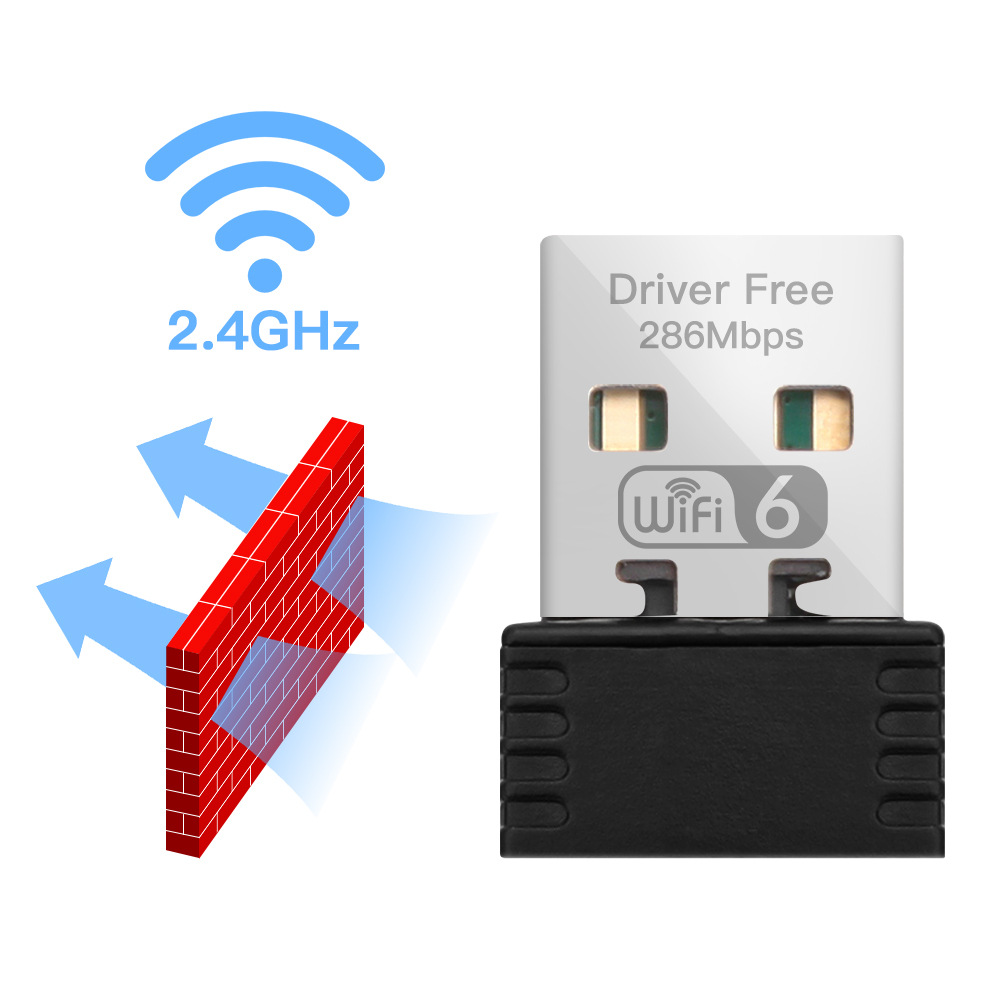As we rely more and more on the internet for our daily tasks, having a reliable, fast internet connection has become a necessity. Many users wonder if a WiFi adapter can increase their internet speed and provide a better online experience. In this article, we’ll delve deeper into this topic and explore the various factors that affect internet speed.

Learn about WiFi adapters
A WiFi adapter, also known as a USB WiFi adapter, is a portable device that connects to a computer or other device through a USB port for a wireless Internet connection. It acts as a bridge between the device and the WiFi network, providing access to the Internet. WiFi adapters come in many versions, from older and slower standards like 802.11g to the newer and faster 802.11ac or 802.11ax.
Factors affecting Internet speed
Internet speed depends on a variety of factors, and using a WiFi adapter can affect your Internet speed in different ways. The main factors affecting network speed are:
1. Signal Strength: A strong and stable WiFi signal is crucial for faster internet speeds. A WiFi adapter with a better antenna or advanced signal amplification technology can improve signal strength, resulting in a faster Internet connection.
2.WiFi standard: The WiFi standard supported by the adapter determines its maximum speed. Older dongles may support slower standards, limiting potential internet speeds. Upgrading to a newer WiFi adapter that supports the latest standards can significantly increase your internet speed.
3. Network congestion: Internet speed can be affected by network congestion, especially during peak usage hours. While a WiFi adapter by itself may not directly alleviate network congestion, it can provide a more stable connection that minimizes speed fluctuations.
Benefits of WiFi Adapters for Internet Speed
WiFi adapters offer several advantages in increasing internet speed:
1. Compatibility: WiFi adapter is compatible with a variety of devices, including laptops, desktops, and game consoles, allowing users to increase Internet speed on multiple devices.
2. Portability: The WiFi adapter is compact and easy to carry, making it ideal for users who frequently switch between different locations or travel. Having a personal WiFi adapter ensures a consistent and potentially faster internet connection no matter where you are.
3. Upgradeability: As technology advances, WiFi standards continue to improve. With WiFi adapters, users can easily upgrade to the latest WiFi standards without replacing the entire device, ensuring better internet speeds without heavy investments.
Limitations of WiFi adapters
While WiFi adapters can improve internet speeds in some situations, they also have limitations:
1. Hardware limitations: The overall speed increase provided by a WiFi adapter is limited by the hardware capabilities of the device to which it is connected. For example, if your device has a slow processor or limited RAM, you may not be able to use your WiFi dongle to its full potential.
2. Signal interference: WiFi signals may be affected by physical obstacles, such as walls, floors, or other electronic devices. In environments with high signal interference, WiFi adapters may not provide the required speed boost.
In conclusion
In summary, WiFi adapters can increase internet speed by boosting signal strength, supporting faster WiFi standards, and providing a more stable connection. However, actual improvements may vary due to factors such as signal interference and hardware limitations. If you want to increase your internet speed, it is recommended to consider a WiFi adapter that supports the latest WiFi standards and has reliable signal amplification technology.
Keep in mind that while a WiFi adapter can enhance your Internet connection, it won't magically make up for poor Internet service from your Internet Service Provider (ISP). To truly optimize your internet speed, it's crucial to have a strong WiFi network and a reliable, high-speed internet connection from your ISP.
 Trolink Joint With Tuya to Make Iot Benefit Every Family
Trolink Joint With Tuya to Make Iot Benefit Every Family
 5 Key Indicators for WiFi Module Selection You Have to Know !
5 Key Indicators for WiFi Module Selection You Have to Know !
 IOT module is the brain of smart products
IOT module is the brain of smart products
 What is the signal coverage range of the WiFi module chip?
What is the signal coverage range of the WiFi module chip?